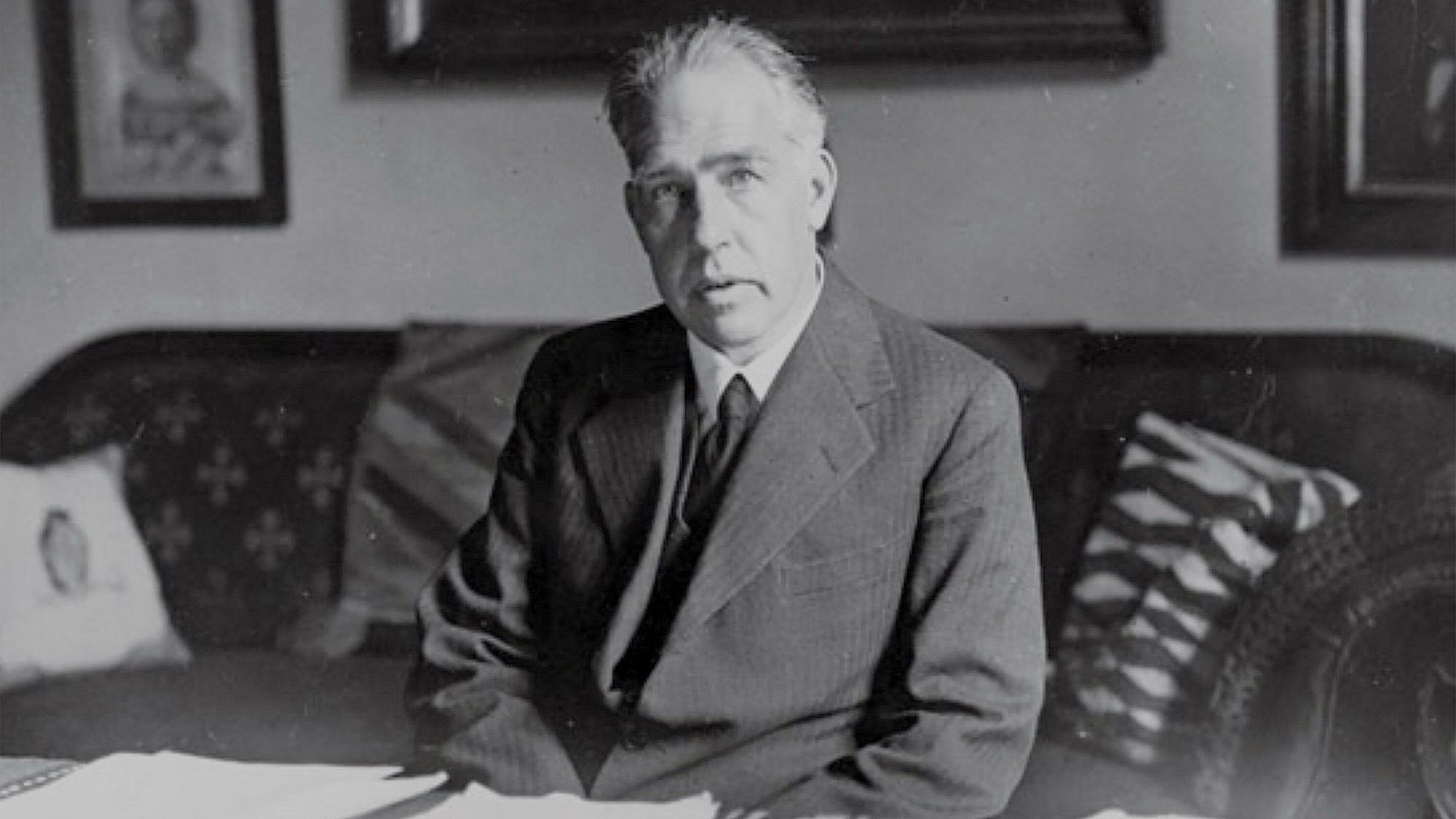One of the greatest investments you can make as a leader will not be found in a stock selection, or emerging technologies, or foreign markets. A leader’s most powerful commodity is his relationships with people. The investment you make in the lives of those around you, in your sphere of influence, can pay off profoundly. Maybe not for you personally—but a genuine leader’s interest is ultimately not his own wellbeing, but to see those around him lifted by his actions and wisdom.
The Bible gives us clear instruction on favoring relationships over money. 1 Timothy 6:17-19, “As for the rich in this present age, charge them not to be haughty, nor to set their hopes on the uncertainty of riches, but on God, who richly provides us with everything to enjoy. They are to do good, to be rich in good works, to be generous and ready to share, thus storing up treasure for themselves as a good foundation for the future, so that they may take hold of that which is truly life.” Instead of pursuing riches we are to be “rich in good works”, those being directed at the people in our circle of influence. Consider for ways you can invest practically in people this week:
Invest in their professional development. Are you in a position to help people grow in their job role and leadership capacity at work? Perhaps you can provide training or mentoring to a coworker or someone who reports to you. A simple way to develop people is to let them in on your decision-making by taking time to explain a direction or project in terms of intent and purpose. Give people an opportunity to ask questions of you. Look for ways to help people gain knowledge and experience through their work involvement, or by suggesting continuing education opportunities. And remember with respect professional advancement, you cannot expect 100% productivity from someone who is receiving 1% effort from leadership in their training and development.
Invest in their personal goals. Being genuinely interested in your people means you are genuinely interested in what they want to accomplish in life. A job is for many just a means for provision, and their personal goals may have little to do with how they spend their working hours. Learn their desires for marriage and family, home and personal interests, and prayerfully suggest ways they may leverage their interactions to bring about their personal goals. A leader is investing in his people when he wants to see them succeed in all facets of their lives. A person will often leave an organization not because their performance is poor, but because their personal goals are not being advanced.
Invest in their physical health. A leader who ignores health and instead feeds someone’s ambition and overwork, and the unhealthy habits that come with it, is doing a great disservice to the individual. Leaders are often fearful to mention someone’s weight, eating habits, smoking, lack of rest and exercise, or other unhealthy lifestyle. However there are ways to gently let someone know you are concerned about their health and wellbeing. Let them know you treasure them as a person. Don’t reward late nights and weekend work, but encourage balance and healthy habits.
Invest in their spiritual growth. Though bringing a spiritual aspect to work for many leaders is taboo, the reality is that you can, indeed, be a positive spiritual influence and invest spiritually in people at the office. It begins with prayer—are you praying often for everyone in your circle of influence? Ask God to open up avenues for spiritual conversation. When someone brings you a personal question or concern, it is appropriate to simply ask, “May I pray for you?” or “May I pray about that?” The majority of people respond positively to an offer for prayer, and you have just broached a wall by letting them know you approach problems and concerns from a spiritual perspective. With people who are openly spiritual in their relationships and interactions, encourage their prayer, participation in service and Bible study, and other avenues of spiritual growth. God made us as spiritual beings and there is an innate desire in everyone to know spiritual answers and have this deeper purpose for life. A leader can find passive but effective means (like prayer) to invest in others spiritually without them taking offense.
What will you do of significance with the 80-or-so years you have? When we’re young we have all the time in the world. And once we realize that isn’t true, we never have enough left to do anything with it.
When a sculptor completes his work in clay, he prepares to make a mold of the piece so he can recreate it. He’ll have to do something to his artistic work to make this happen, and that is to cut it apart.
As Jesus began His ministry on earth, He called a dozen men to be His disciples. We can learn about Jesus’ methodologies from His uniquely worded invitation.
A 65-year-old leader will never have more experience than he has in his fourth quarter. He will have more knowledge than he has ever had.
A hack is a clever trick or shortcut for accomplishing something. There are hacks for smartphones and cooking and driving. What about in your leadership? Is being a good leader something that has hacks?
Here are some common questions we receive from table leaders, and some suggestions for how to maintain best practices and grow in life and leadership.
Jesus and His disciples traveled and ministered together, day and night, for three years. We don’t know of all the meals they had together, the conversations as the walked from town to town, or what Jesus said when they fished, and started campfires, and woke up in the mornings.
As a leader, you’re not over a what, but a who. To lead is to influence others in a way that helps them grow personally, professionally and spiritually. Leadership is fundamentally about influencing people.
Let’s face it, we all want to quit sometimes. In the midst of misery, despair, depression, failure, pain, surprise, problems, emergencies—we are all tempted to throw in the towel.
Some leaders see themselves as a steward of their position. Others want to claim a top position in business. Still others want to accomplish something specific. None of these purposes, however, outlast the leader himself.
There is great wisdom in the profitable use of time. For a leader, this takes a certain amount of discipline, and a purposeful desire to use his days for positive and impactful tasks and relationships.
The selfless, brave, serving, chivalrous and kind men we aspired to be growing up have been largely replaced by a generation more self-involved, fragile and less grounded to an internal moral code. What happened?
Did you know that the word decision comes from the Latin word caedere, meaning “to cut off”? In other words, a decision will cut you off from other possible outcomes.
Being offended is to feel hurt, angry or upset by something that is said or done. Note that offense is a feeling. Have you offended someone or been offended today?
A mentor is an advisor and support for someone less experienced. This is not a manager, but rather a specific relationship designed to build up the skills and experience of the mentee.
In men today we have a crisis of the unmentored. Because men lack wisdom-building relationships, they cannot become the leaders they need to be for their marriages, families and businesses.
Warren Buffett is CEO of Berkshire Hathaway and is considered one of the most successful investors on earth. He has a net worth of over $117 billion (March 2022).
Retirement is something you’ve been thinking about it for years, planning for it, saving for it. There will be a time when you can quit work and enjoy your later life. But the Bible contains a great secret related to retirement that you probably didn’t know.
A table might not seem like a foundation for developing as a man, a husband, a father, a leader, but it is! Leadership is ultimately about your impact and influence on other people. At Friday Morning Men’s Fellowship we focus leadership development at a table.
You begin a men’s fellowship for the purpose of growing in leadership. Our simple model of gathering weekly in a small group setting to learn, live and lead has seen thousands of men become great leaders through more than 40 years.
Niels Henrik David Bohr (1885 – 1962) was a Danish physicist who proposed and later confirmed the structure of the atom. He is responsible for the initiation of quantum theory and was awarded the Nobel Prize in Physics in 1922.
As a leader, your influence can mean more, though, than product endorsements to an online audience. The Bible endorses faith-centered leaders influencing others toward God and good works, by their speech and through example.
No table group is like any other. We often hear of the advantages of “diversity” in the workplace, but this is most likely based on traits like skin color. The true benefit of diversity, though, is in a broad range of thoughts and experience.
As you grow through life and work, you might wonder if there is a secret to becoming a great leader. Do the world’s best leaders know something that you don’t, which enables their leadership in a more effective and impactful way?
The idea of learning from someone more experienced than you, and then living that out by passing it on to the next generation, is the crux of mentoring. Having a mentor will greatly enhance your life and leadership.
The first person you need to be able to lead is yourself. Leadership is not so much about the actions of the leader as it is the character he possesses.





























As a leader you do not have all the answers. Smart leaders surround themselves with people whose knowledge, skills and experience supplement their own.